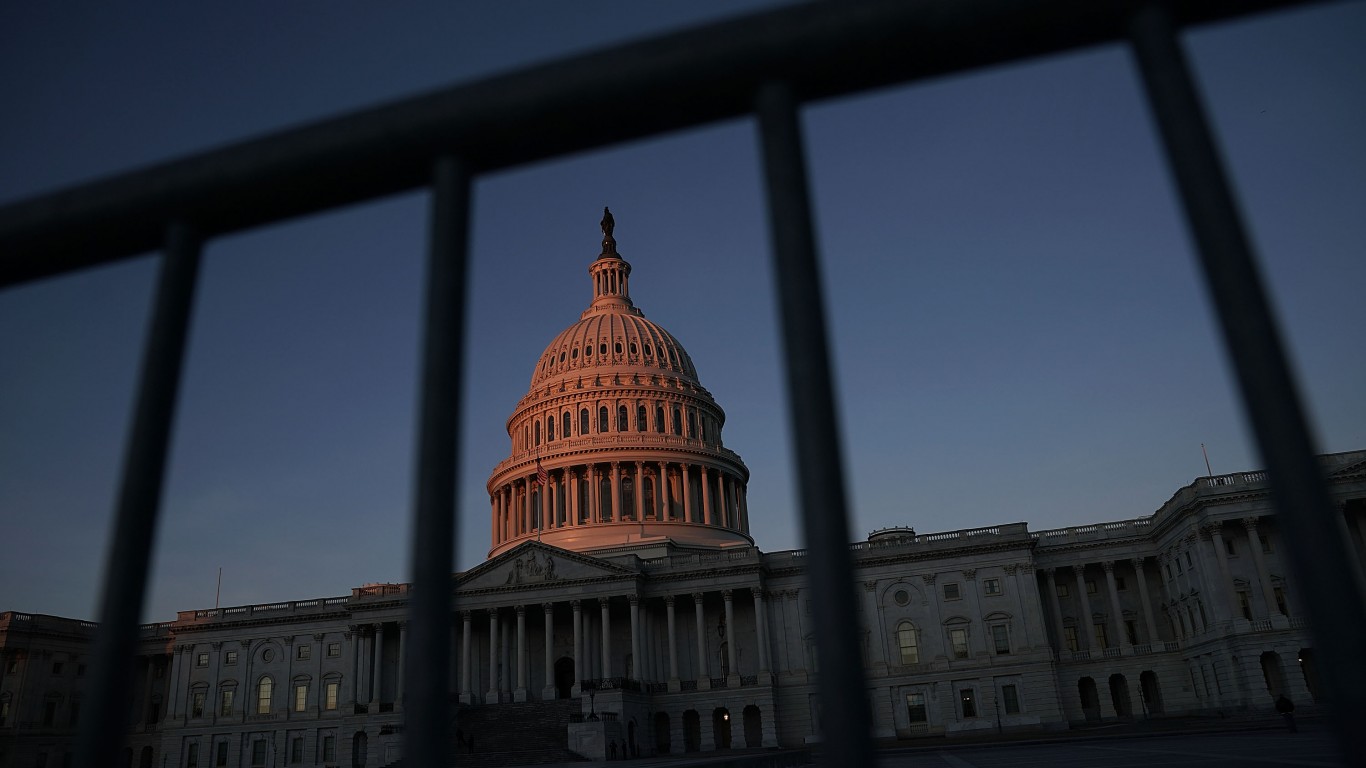Energy
US Senate Takes Aim at OPEC, but Will It Follow Through?

Published:
Last Updated:

On Thursday, a bipartisan group of four U.S. Senators introduced legislation titled the No Oil Producing and Exporting Cartels Act (NOPEC) that would give the U.S. Department of Justice authority to sue members of the Organization of the Oil Exporting Countries (OPEC) for antitrust violations. Similar legislation was passed out of committee in the House of Representatives Thursday and now needs approval by the full House.
The four Senators were Republicans Chuck Grassley of Iowa and Mike Lee of Utah, along with Democrats Amy Klobuchar of Minnesota and Patrick Leahy of Vermont. Missing from the group were any Senators from big oil-producing states like Texas, North Dakota and Louisiana.
Perhaps that’s because the oil patch is not well-pleased with the NOPEC legislation. Earlier in the week, American Petroleum Institute CEO Mike Sommers sent a letter to Senate and House leaders of their respective Judiciary Committees pointing out why the legislation “threatens serious, unintended consequences for the U.S. natural gas and oil industry.”
Sommers also says that the NOPEC legislation is unnecessary because the Sherman Antitrust Act already covers activities by other nations, even if the activities occur overseas. He goes on:
Second, the apparent focus on the legislation – improper influence on energy markets – has been mitigated significantly in recent years. The success of America’s natural gas and oil industry coupled with continued integrations with our NAFTA partners has significantly increased the energy security and self-sufficiency of the United States. This energy renaissance has made America much less susceptible to efforts that may be undertaken by foreign organizations.
He is referring, of course, to booming U.S. crude oil production (currently running at about 11.9 million barrels a day) resulting from horizontal drilling and fracking. Although Sommers doesn’t say this, U.S. production has rendered OPEC virtually toothless. If the cartel cuts production, there is every reason to believe that rising prices will spur more U.S. production. If the cartel tries to flood the market with crude, the price could drop in the $30 a barrel range as it did several years ago.
Complicating matters further is a move by some current members of OPEC to create a formal partnership with Russia and nine other countries that have become known as OPEC+ because they have cooperated with the cartel in cutting production in order to lift prices. Adding Russia to the cartel only makes increasing U.S. production a better bet.
And while Russian President Vladimir Putin may want to poke his finger in President Trump’s eye, Putin also has to keep his oil oligarchs happy. They do not support production cuts because it cuts into the wealth, nor do they want to risk losing access to U.S. capital through their business relationships with American companies. As energy industry consultant Bob McNally told The Wall Street Journal that the Russian oligarchs “want to do the absolute minimum to leverage Saudi cuts.”
Where President Trump comes down on the issue is also arguable. He has made lower pump prices a key point in the run-up to the 2020 elections. On the one hand, spiking retail gasoline prices do not help his chances for re-election. On the other, reduced supply drives up the prices for the U.S. oil industry, a dependable source of campaign cash for Republicans running for office.
The signal to watch for is if (as is likely) the Judiciary Committee reports the NOPEC bill out of committee for a full Senate vote. Majority leader Mitch McConnell will only let that vote take place if Trump supports it and it does not threaten to unveil a split in Republican solidarity. If McConnell shelves the NOPEC legislation, then low gas prices are a good bet to figure strongly in Trump’s 2020 bid for a second term.
The thought of burdening your family with a financial disaster is most Americans’ nightmare. However, recent studies show that over 100 million Americans still don’t have proper life insurance in the event they pass away.
Life insurance can bring peace of mind – ensuring your loved ones are safeguarded against unforeseen expenses and debts. With premiums often lower than expected and a variety of plans tailored to different life stages and health conditions, securing a policy is more accessible than ever.
A quick, no-obligation quote can provide valuable insight into what’s available and what might best suit your family’s needs. Life insurance is a simple step you can take today to help secure peace of mind for your loved ones tomorrow.
Click here to learn how to get a quote in just a few minutes.
Thank you for reading! Have some feedback for us?
Contact the 24/7 Wall St. editorial team.